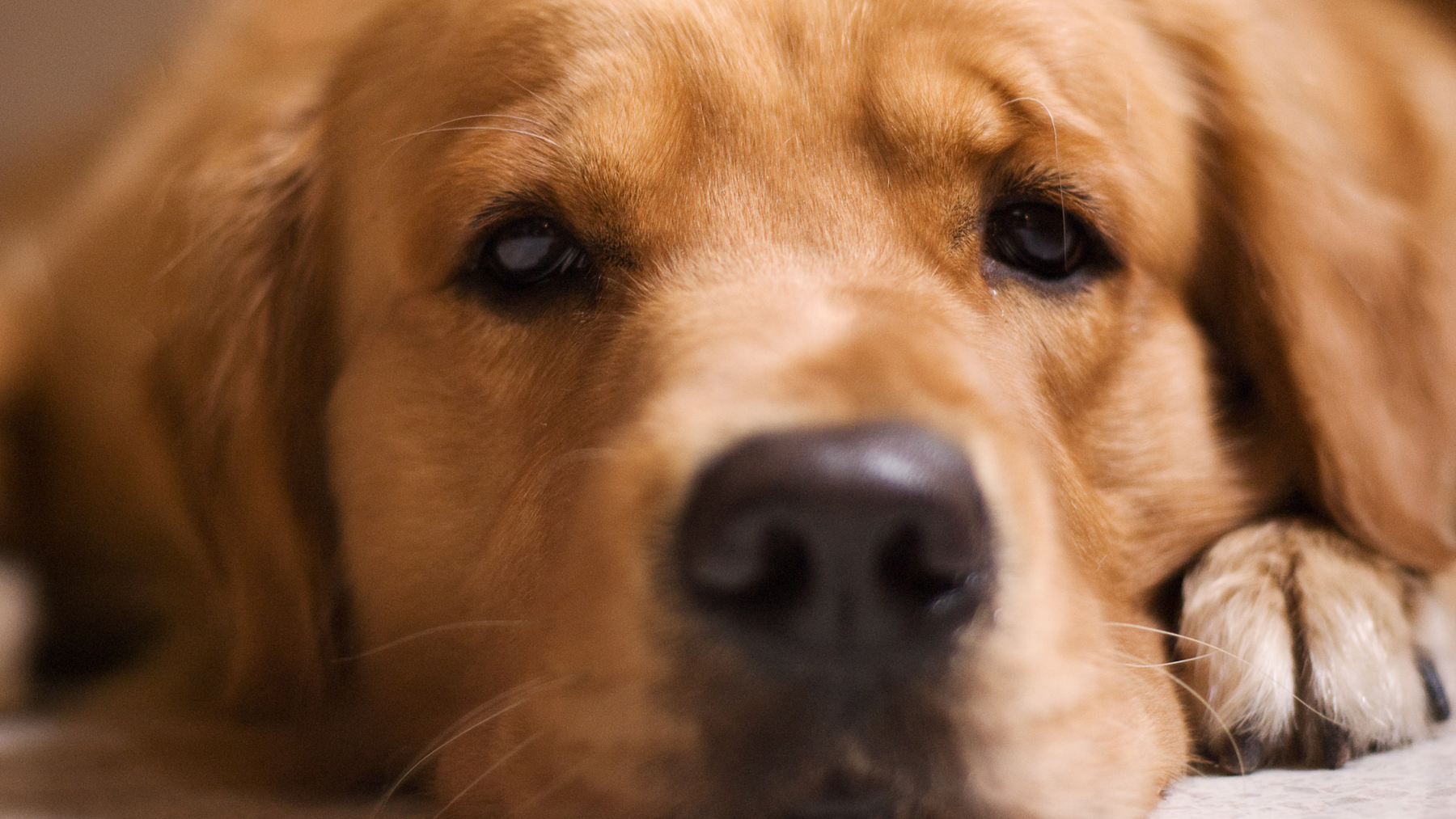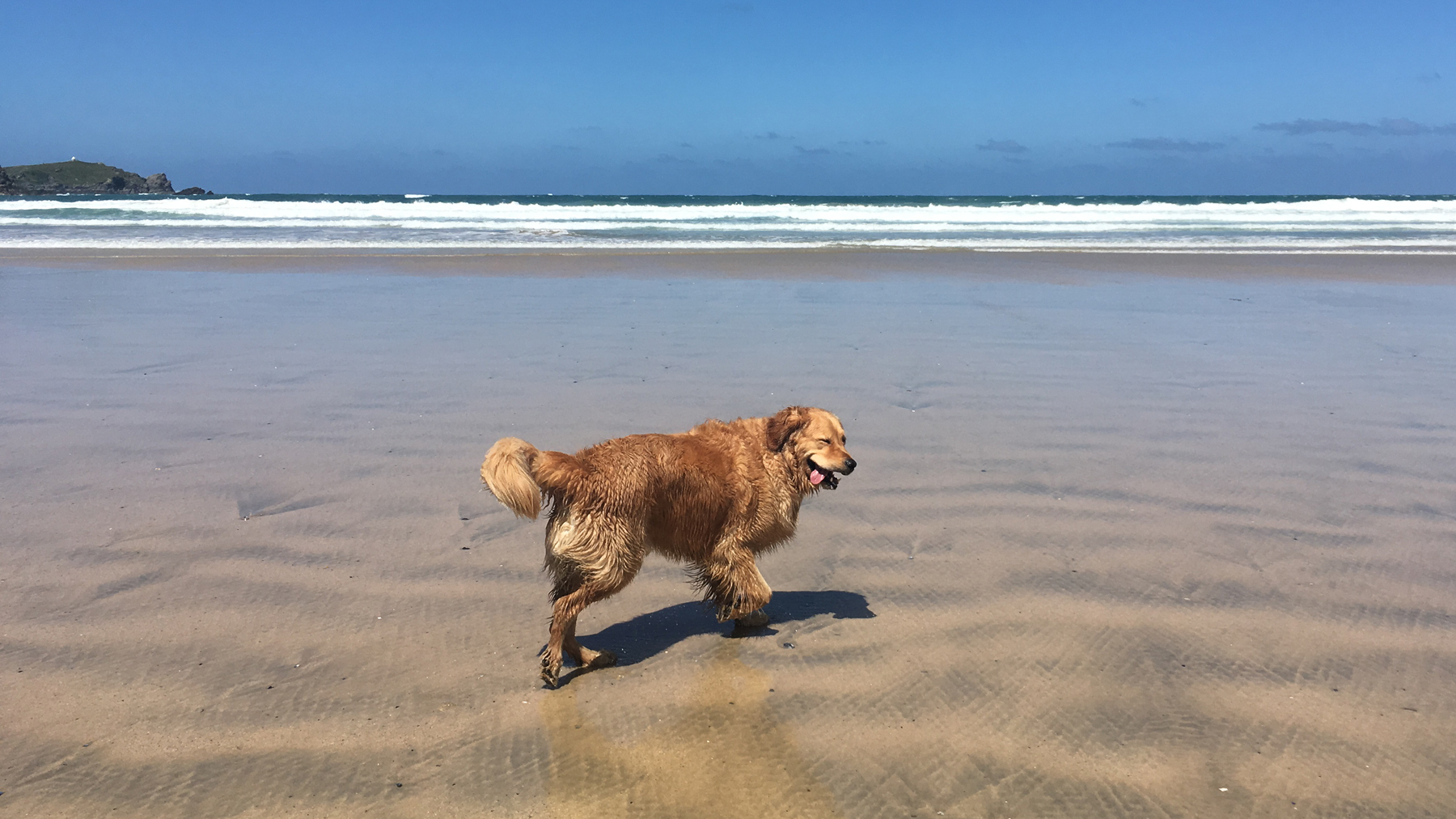
Like many young couples, my husband and I got a dog long before becoming parents. And while we were determined to do everything right, we definitely spoiled our Golden Retriever, Monty.
In many ways, we treated him like - and he certainly thought of himself as - our firstborn. From supplying him with the best puppy toys, spending all our free time with him and taking him everywhere with us, we gave him nonstop attention.
However, when we decided to expand our human family, we ran into some problems. When we brought our daughter home, it soon became apparent that Monty wasn’t altogether pleased with the new addition.
While he was a very placid dog, his behavior began to negatively affect us all, including him. His attention-seeking reached the next level. I remember my mum visiting when our daughter was a couple of days old and he physically put himself between her and the baby and persistently nudged her hand to stroke him. As our daughter grew, he would also barge past her when she was on the move if he heard someone at the door (potential attention!) and he knocked her over several times.
Getting to the root of the problem
Both my husband and I felt very guilty. With the relentless demands of new parenthood, we both had less time, and seeing Monty struggle with the transition just added to the feelings of guilt. Not sure how to handle the situation, we decided to get in touch with a dog trainer. If you're reading this and thinking of hiring one, make sure you find a good trainer by reading our guide on how to spot dog trainer red flags.
After a quick chat, it became clear that we were the problem. Our dog trainer was incredibly helpful although, he did repeatedly explain we should have been more proactive beforehand (Ooops).
It turned out that our unrelenting doting on Monty in the previous few years had conditioned him to expect our attention whenever he wanted it. And up until now, that hadn’t been a problem. I worked from home, we spent all day together, I was more than happy to oblige with a head scratch whenever the whim took him. But now trying to juggle the demands of a newborn along with an adorable, but attention-seeking, dog, I started to see the error of my ways.
Here’s how we stopped the attention seeking behavior…
Below are some of the best practical suggestions that helped us manage the situation. I’ve included a few extra suggestions from the experts I spoke with, as we’re currently expecting our second child, and are planning to be more proactive with our new dog, Lowen, this time around. Lesson learnt!
1. Avoid on demand attention
This was the biggest lesson for us. Monty was used to us dropping everything whenever he wanted attention, so we had to learn to hold firmer boundaries with him and sometimes say no. I was relieved to hear we weren’t the only ones making this mistake. “Attention withdrawal is very common, which is why we recommend slowly withdrawing before the baby is born,” says Lisa Lucero, Owner and Head Trainer at Dog Dynamix.
2. Teach self-entertaining skills
So if you can’t give attention on demand, what can you do? Teach the dog it’s OK to be alone. “Teaching the dog it's okay and comfortable to self-entertain with some of the longest lasting dog chews, puzzle toys, or increased kennel time will really be useful. A 'place' or bed stay is a great way to have your dog nearby, but not underfoot or demanding physical interaction,” says Lucero.
3. Provide adequate exercise
Between adjusting to new motherhood, and coping with restricted outside access in lockdown, it’s fair to say Monty’s walks were not a top priority for a few months. “Providing enough exercise is a critical ingredient to making a calm and happy dog,” says Lucero. “Hiring a dog walker can provide some enrichment while giving you time alone while making sure your dog's exercise needs are being met.”
After talking to our trainer, we realized he desperately needed more exercise so we hired a dog walker to make sure he was getting decent walks as well as some extra love and attention. Surprise surprise, Jo, our lovely dog walker, rapidly became one of his favorite people.

4. Set boundaries
If you can do this before the baby arrives, all the better! We’ll certainly be better at setting boundaries this time around. So what are some useful, practical ideas you could implement? “The baby room should be completely off limits to the dog. Boundary training is very helpful for this,” says Lucero.
But what if they’ve always slept in your room? “If they usually sleep in your room, gradually move their bed closer to the door over a week or two until it’s eventually placed outside the door. Using a baby gate on the bedroom door is often easier for the dog than completely closing the door if they have always slept in your room,” says Wendy Kruger, Dog Behaviour and Training Specialist at Woodgreen Pets Charity.
5. Use baby gates
Speaking of baby gates, feel free to use them liberally throughout the house. “It’s a good idea to install baby gates a few weeks before the baby is expected to arrive. This allows your dog to become familiar with being separated from you using the gates or other barriers,” says Kruger. “During these periods of separation, provide them with different engaging items such as LickiMats, long-lasting chews, stuffed Kongs, and other enriching toys that will keep them busy. Repeat this activity a couple of times throughout the day, gradually increasing the duration to help the dog settle and enjoy their treats.”
6. Think about transport
If you intend to take your dog out alongside your new baby, you’ll also need to think about transportation. “We recommend teaching the dog a very strong 'heel' cue, in conjunction with the stroller. We also recommend putting a crate in the car, and teaching the dog to ride comfortably. Having a dog that pulls on the lead means they can't safely be walked with a child, and same goes for a loose dog in the car with the car seat,” advises Lucero.
7. Prioritize time with your dog
But don’t worry, it’s not all boundaries and rules - it’s still crucial that you cherish that special bond with your dog. “It’s really important to make sure that your dog receives enough one-on-one affection from their favorite people. Make sure they have daily opportunities for this when the baby is sleeping,” says Kruger. One of the ways we’d do this was by taking turns taking Monty to the beach while the other one looked after the baby. Also, evening snuggles once the baby was asleep were a tonic for everyone involved.
While welcoming in a new family member is always going to be a transition for any dog, you can do your best to make it a positive experience for them by preparing them as much as possible beforehand. Foster that special relationship between your baby and dog from the offset and before you know it they’ll be thick as thieves.







